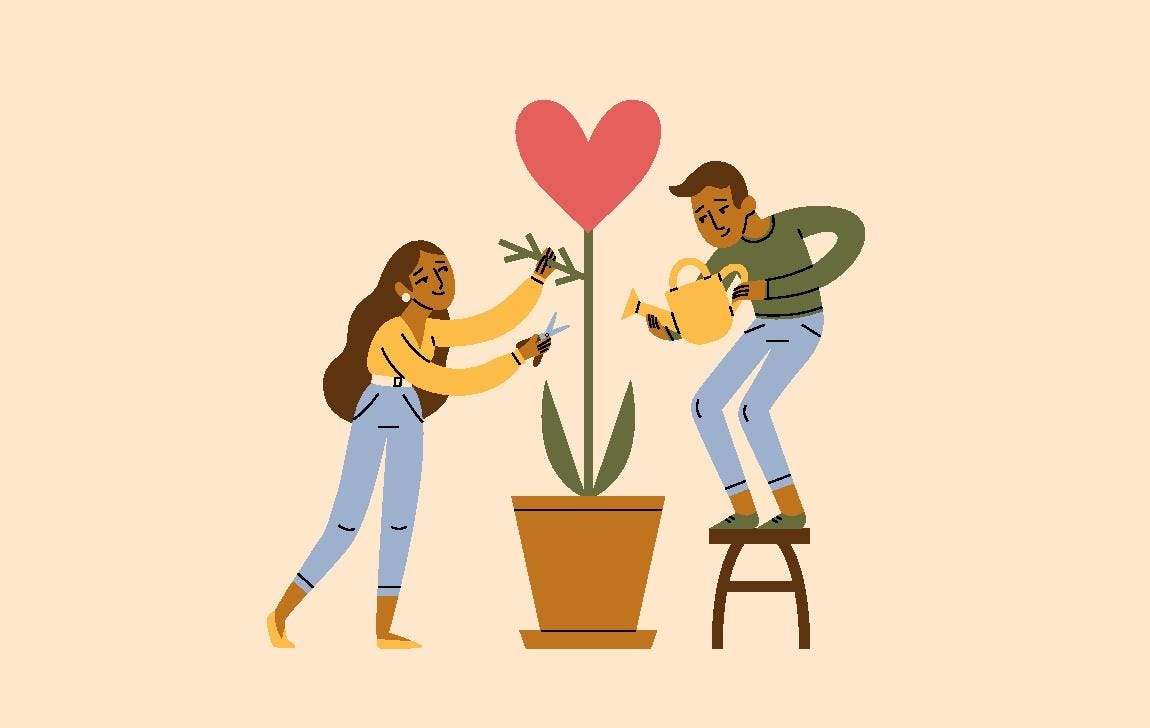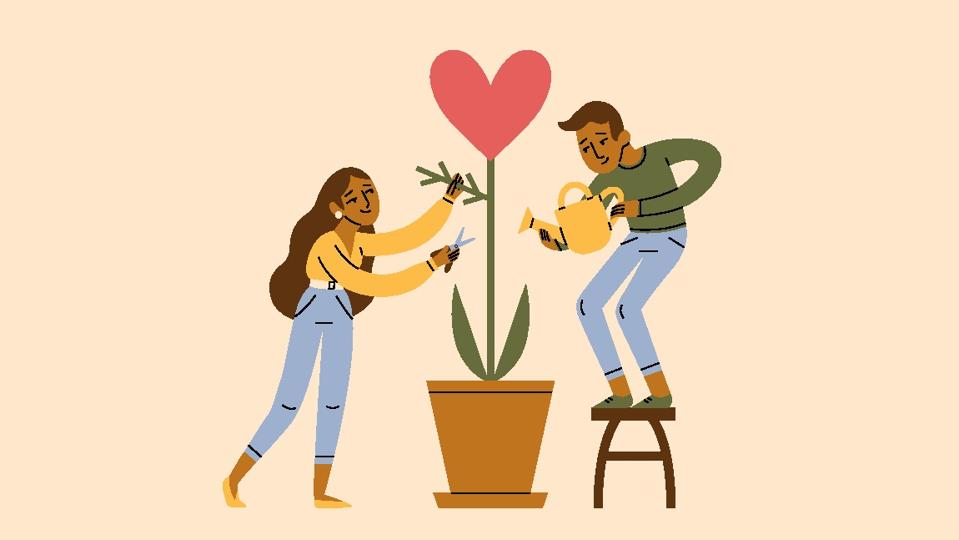This simple, but powerful, mindset shift can transform your love life. All it takes is a subtle change in how you view your role in the story.
getty
We all know how important communication skills are in building a healthy relationship, but we also need social confidence, empathy and emotional self-regulation to work our way toward intimacy.
One way to develop these skills is through relationship education, both for couples and single individuals. Relationship education gives us the knowledge and skills to form and sustain healthy relationships.
A new study published in the Journal of Couple & Relationship Therapy analyzed data from 1,400 single participants in a relationship education program. It found that people who were less satisfied in their past relationships saw the biggest improvements in their relationship skills after completing the course. However, changes occur only when people acknowledge the need to change.
The simple act of recognizing the need for change seems to open the door to building healthier relationship habits, according to the researchers.
This mindset shift worked best for never-divorced singles. These participants showed a stronger connection between their dissatisfaction in a past relationship and their motivation to change.
On the other hand, divorced participants were less likely to feel they needed to change, possibly because they had already made the effort before the relationship education course or were more likely to blame their ex-partner.
Regardless of the outcome of the relationship, we need to constantly work on ourselves to communicate better with our partners and resolve conflict effectively.
Research published in the Journal of Social and Personal Relationships explains how self-improvement can be beneficial for relationship growth. It may not entirely alter the relationship itself, but when your effort to change is noticed by your partner, they may feel that the relationship is growing.
On the other hand, if you try to change your partner instead of them putting in the work themselves, it can backfire. Not only do attempts at “fixing” another person not work, but you’re also likely to feel worse about the relationship in the process.
Your Locus of Control Affects How Much Responsibility You Take
Whether or not you feel the need to change may also stem from who you think is to blame in any situation. Do you generally blame external circumstances when things go wrong or do you look within and see if there’s anything you can work on? How do you perceive your role in the plot? Do you think things “happen to you” or do you “make things happen”? The answers to these questions provide insight into your locus of control.
People differ on who or what they deem responsible for what happens to them. In his classic study on internal versus external control of reinforcement, psychologist Julian Rotter identified two types of control:
- Internal locus of control. People interpret their own behavior and personality as responsible for behavioral consequences.
- External locus of control. People think their behavior is controlled by luck, fate or other powerful external influences.
If you have an external locus of control, you might be less motivated to make personal changes and blame others rather than looking inward. This locus of control may help you in situations you really cannot change, offering a sense of peace and acceptance. However, it may be detrimental in relationships where each partner needs to take responsibility for their actions.
This isn’t about self-blame, but about creating a habit of self-reflection.
Without an internal locus of control, you may blame your partner or external circumstances for your problems, hindering your personal growth. This can cause a breakdown in communication as the “blame game” leaves you and your partner stuck in a cycle of negative interactions.
How To Internalize Your Locus Of Control
The first step to building a satisfying relationship is to take ownership of your actions. Once you do that, you’ll find it easier to take accountability and mend your ways, instead of throwing in the towel.
Instead of asking, “Why does everything go wrong in my love life?” ask yourself: “Have I talked to my partner about how we can work through this together?”
For instance, if your partner ever acts emotionally distant, you may feel destabilized instantly and give up on your partnership because you think there’s nothing you can do. It may feel like an important part of your life is being taken away, when in reality, you may be relinquishing your power without realizing it. Believing that everything is outside of your control leaves you feeling trapped.
This is why you may need to look within and internalize your sense of control. This often starts with building up your self-esteem and trusting your choices and actions. Ask yourself how you can show up as the best version of you to make the relationship work.
Once you start to understand that things are not as out of your control as you think, you’ll be able to act with integrity and confidence. Be honest with yourself about what needs to change and communicate with your partner about what your relationship needs.
Do you think your life is in your control, or is it out of your hands? Take this science-backed test to find out: Locus Of Control Scale









